BuzzFeed Fashion's "How I Made It in Fashion" series takes you behind the success of the industry's most important players. Here Lucky magazine's Senior Digital Projects Editor John Jannuzzi shares his story — proof that waiting tables to pay your way through grad school, well, pays off. (And, you know, being really good at your job too.)
When I was a kid I never really bought fashion magazines. I was very interested in, I guess, the science behind how people dress — and how they think that represents themselves. One of my earliest birthday memories is when my brother bought me this Reader's Digest book about how people dressed [in the past]. It went all the way back to the Stone Age.
Also, I used to draw characters from Disney movies — my favorite Disney movie of all time is Hercules, I loved that — and TV and cartoons over and over. I'd change what they were wearing, design new clothes for them. The thing about Disney movies too is when you look at them and you're a little older, you see that the art — and it's not like I watch them all the time — it's really true to that period in history. And I think that's how I got really interested in design and all the different elements of it. I was really fortunate to grow up in a family that really encouraged creativity. My parents always just encouraged me to keep doing that, and as I got older, I studied art in high school and then I majored in art in college too, so I would say I approached [fashion] from a broader perspective. Also, I'm really glad I went to a liberal arts school because I took communications classes, film classes, European history classes; having that breadth of knowledge really informs a lot of your opinions. And then I graduated college with a degree in printmaking, which is like completely useless, so I figured, "Well I'm going to try and get into the fashion industry."
All of my friends in college were accounting majors. So it's the first semester of senior year and everyone [else] has job offers — I start to freak out. Obviously, in the creative industries, you don't do that summer internship and your boss says, "Great we'll see you next year for a job." Now I went to school in Allentown, Pennsylvania. I had no connections to the fashion industry. I decided that I was going to do graduate school and I applied to Parsons. I got accepted and very shortly after I graduated I moved to the city. It was a pretty clichéd moment: I had a suitcase and arrived on a Metro-North train. I was renting an apartment in the middle of Times Square. At first I'm thinking, Wow, I live in New York City! That got really old real fast.
My parents quickly informed me that they would no longer be supporting me financially, so I had to get a job. I feel like I work very hard now, but I have not hustled like I did in those days in forever. There are pictures of me from when I was in school floating around somewhere and I just look cracked out, like I haven't slept in days. I was taking classes and interning and working at a restaurant at night. One night while I was working Tim Gunn came in to eat. My cousin was my boss there at the time, and she said, "You have to go to his table and you have to talk to him and you have to get his business card."
So I talked to him and he was very, very kind. I'm sure he was probably on some level a little annoyed to have his meal interrupted, but he's one of the nicest people I've ever spoken to. He'd just started at Liz Claiborne and he said, "Come into the office, meet with me, and I'll do whatever I can to help." Now also at this time, I have say… My clothing situation was not good. I had no money! I was pretty much wandering around the city in gym shorts and T-shirts; I'd bought a suit at H&M to wear at the restaurant. So what the hell am I going to wear to go meet with Tim Gunn?! Also, how am I ever going to get a job if I only have gym shorts?!
I went to Banana Republic and bought a look straight off a mannequin. I looked totally fine, but it's funny because I would never do that now. Not because I don't like Banana Republic, just because who does that? So I went in and met with him and he gave me some information about the internship program at Liz Claiborne Incorporated. I also ended up having another connection at Liz Claiborne — my father is a pediatrician and he had this one patient who just loved him, and this patient's father was the senior vice president of human resources at the company. So I found an internship there, and it was the most valuable internship experience I had. I was there for a summer, and then summer ended and I asked if there were any jobs open. They said no.
So I thought fine, whatever. And I continued interning and working — but then a couple months later I got called for informational interview at Kate Spade, which was owned by Liz Claiborne. The human resources coordinator I had dealt with during my summer internship had recommended me. And, you know, I grew up in Connecticut so I was surrounded by girls who were obsessed with Kate Spade; I was very familiar with the brand. They said, you know, "Your résumé looks good and we might have something for you in the future, but right now we're hiring for a marketing manager and you're entry level." I totally understood — I'd never had a proper job before — so I just asked them to keep me posted. Time goes by and the recession happened and suddenly their budget for a marketing manager got slashed to, like, coordinator level. My level! They called me up again, I went for another interview — oh gosh, I was wearing that H&M suit I'd wear to work at the restaurant. It was a total disaster at this point. During the day there were visible grease stains on it. (laughs)
I don't think I've ever been that nervous for a job interview. I remember leaving and I called my parents; I thought it went horribly wrong. I was like, "This is a mess, I'm screwed." I did the whole thing with the thank-you notes and all that. I remember thinking, "I have to get this job somehow," so I put together 20 pages of marketing ideas for Kate Spade based on the goals that they had mentioned in the interview. And they replied very quickly saying, you know, "This looks great, thank you so much for your effort, we're still making our decision we'll be in touch." I kept in touch for months. I'm talking six or seven months. People told me to give up, saying that they wouldn't hire me or that the position is frozen, but they were always getting back in touch. Finally, seven months later, I'm sitting in the office at another internship, for a menswear label called Gilded Age actually, and my phone rings. It's human resources at Kate Spade and they said they had a job for me. That was one of the best moments of my entire life, although I was an idiot because I basically said whatever you want to pay me is totally fine when they started talking salary.
Now part of that document I had put together listing marketing ideas was about what the Kate Spade team could do on social media. This was 2008, so in terms of Facebook and Twitter it's still pretty early in the game. We started paying attention to social media. Kate Spade had maybe 2,500 fans on Facebook and I saw a big opportunity — it's Facebook, there's a lot of college students on, people who identify with the brand. A large part of my role became developing the brand on those channels. Fortunately for me, that was right around the time that people began paying attention to brands' social media presence. That was a big part of my success at the company.
While I was at Kate Spade I started my Tumblr, Textbook. It started as a random marketing idea — what if we could reach out to some of our favorite artists and ask them for illustrations of our favorite books or our favorite books' characters, which we could display in-store. Such and such artist paints Holden Caulfield or whoever. Kate Spade said no, but I still thought it was a great idea, so I decided I would just do it on my own. Only instead of illustrations I decided to use runway photos. In fact the first character I picked was Holden Caulfield. What would Holden wear from the fall 2010 menswear collections? I took images from style.com, sliced them up in Photoshop and made one composite look. It started to get a lot of attention, I think because of the concept and because it was a little different than the traditional fashion blog, which at that time was very much about personal style.
A couple of months after I started at Kate Spade I had the strangest conversation with my boss. She basically said, "John, this is not the job for you." So obviously I panicked, asking, you know, "Are you firing me?!" She said no, but that I was really into "this digital and social stuff" — she said she'd help me get another job more focused [in that field]. So strange! In the end, she said she thought I should go work for a company like Starworks Group, who Kate Spade had just hired as a digital agency. So I went over there, and continued doing basically [the same stuff] from a different desk. I actually think it was one of the reasons Starworks was really interested in hiring me out of Kate Spade was because of my blog. It was original and in fashion now — I'm not trying to say that I always come up with original ideas — an original idea in this day and age is hard to find. It's so valuable. But I was only there for about four months before I realized that PR was just the wrong industry for me. Honestly, it felt a lot of times like I was just emailing my friends, pleading, "Hey will you write about this, even though I know you hate getting these messages."
I got an email from Lucky magazine asking me to be on the hosting committee, I think, of a blogger conference they were running. I mean, I didn't even know what a "blogger conference" was. So I met with Lucky's director of online content and she explained it, and we talked about all these digital plans they were working on I thought it all sounded great. A few days later she emailed me asking if I knew anyone to fill this role they had open, which was going to be half editorial, half digital marketing. I said, "Well, what about me?" I remember she said, "Oh we hadn't thought of that," because I was like, "Yeah, you should think about that."
Then I went to a breakfast at the magazine's offices and saw [then editor-in-chief] Brandon Holley there. We'd talked briefly at that blogger conference and I thought she was nice. She said, "Oh, I hear you're interested in that job." Soon after that I saw her again during New York Fashion Week — and this is one of my favorite moments of all time. We're both walking out of the Donna Karan show and I see her and it's like, "Oh God, if I don't say hi and she sees me it's going to be bad but if I do say hi and it's weird it's going to suck." We're shuffling out and I think the awkward moment has passed… I turn around and we're face-to-face. Oh shit. She grabs my arm and just says, "you're coming to work for me, right?" I had not had like a formal offer or anything. I mean, I had a good feeling but I didn't know. She says, "you have to work for me." I said, "Yes, Brandon, I will totally work for you." We hammered out all the details, I came to Lucky and have been here ever since.
[Explaining social media] to my bosses early on was near impossible. I mentioned the timing — Facebook actually came out when I was in college so I'd already had this experience. For me it was just second nature. But it wasn't for everyone — I got into lots and lots of trouble starting out at Kate Spade because I would post things and the copywriter wouldn't have seen it or the web art director would freak out. I had to sit them down and explain, you know, it's OK for a brand to have a Facebook post that reads a little casual. I remember using the brand's email newsletters as my example. Kate Spade communicates with consumers through their email inboxes; Facebook is essentially the same thing. But people are always resistant to change and it was tough. There was a point where I would have to write one tweet a day for 30 days in advance and then have them approved and then have them scheduled… and I was losing my mind. I just went into my boss's office and said, "Look you approve every single one of these, there's never a problem. Please just let me run with it!" She said fine, and that, "We'll play it by ear." It worked out really well. I mean, it's trial and error. Some things work really well, and some things didn't. Fortunately, when I went to Starworks my bosses were totally onboard with it all. Take it and run with it, they said, and just do as much as you can as well as you can. And by the time I joined Lucky I was senior enough in my position that I could make those calls myself. I just said, "I'm just going to do this and this is how it's going to be done."
That's the most validating part of my job. I think it's really hard for young people in the industry to be validated. But coming to Lucky and them saying they wanted me and trusted me implicitly, that was so exciting. I felt like, wow, I'm doing something right. I was always kind of a fuck-up in high school, but I'm a grown-up now.

My favorite part of working here is, honestly, just creating content for the website. Our digital team is so strong and we get so much freedom — you know, Brandon really trusted us. Things have obviously changed at Lucky in the past few months but now Eva Chen, our new editor, who is extremely well versed in digital, really believes in us too. And we can do so much online because the magazine's void and the magazine's identity is so casual and friendly. We're supposed to be that cool friend that knows about all your favorite stores and what you need to be wearing this fall and all kind of things, really. To work at a place where you can write in their voice but still maintain your own is really exciting.
And the person who picks up Lucky magazine or reads luckymag.com knows that they are going to be shopping. We're not going to be like a random post on, you know, 20 sex positions that will make your man go crazy. That's never going to happen with us. We know that people coming to us are coming to take action, to browse, to shop. That's been one of our greatest success points — and the magazine's entire history is that people who pick up Lucky are going to spend money, a lot of money.
I love Fashion Week. I think it's the best. I mean, it is definitely, it's not easy, I will say that, but — and this is so cheesy — when you're waiting for a show to start and then the lights go down, I'm always thinking, Oh shit it's starting, oh wait I'm at Fashion Week. Whenever I'm able to go to the Marc Jacobs show I always have this moment where I get giddy. And I remember not that long ago when I'd be sitting in my apartment just watching it on a live feed, so to be able to experience that first hand is amazing. I've never been to a Proenza [Schouler] show but, you know, I would potentially murder someone to get in there. Yeah, if I could just get in and go to jail afterward, that would be totally fine. Prabal Gurung is also one of my favorites, and rag & bone is always great. Oh, and Jeremy Scott, because it's always such a crazy show. I just like being there. A lot of people are like, oh my God, all that work for a 10-minute-long show? But that 10 minutes is so perfect. How can you not understand that?
I am always looking for someone with a unique point of view. Give me something I can work with. Tell me something crazy and weird. And I also think that, one of the things that I really learned in my experienced interning is that people are really impressed if you continue to demonstrate that you're interested. And I understand that internships are hard to get and jobs are even harder, but if you're really so invested in the fashion industry then prove it to me some other way. Do you have a blog, a meaningful blog, that is? Is there something else I can learn about you other than the fact that you're graduating college and you really need an internship just because. I'm a firm believed that you can't be happy in your job if you're not truly interested in it. Also, I don't want to work with anyone that I can't have a decent conversation with. There are people who are great interviewers, but that doesn't always mean that they can converse — it's also about finding people who are on their toes. In an interview, I'll throw out a really random interview question about Oreos. And I don't want people to be stunned, because you have to go with the flow. That's especially the case with digital news because you can't just stop producing content if it's a slow news day. You have to be nimble.
That said, our good interns always stay in touch with us and we do everything we can to help. There's a lot of rumors about Condé Nast. People are always like, "Oh, everyone here is so mean." No, everyone here is actually really nice. No one's is going to bite your head off if you ask for like a quick chat. Eva Chen meets with people all the time. A lot of people here are willing to help, I think because a lot of people know how hard it is. If you find somebody that's talented you really want to see that they get a job and get what they deserve. I always encourage that networking.
— As told to Alex Rees.
